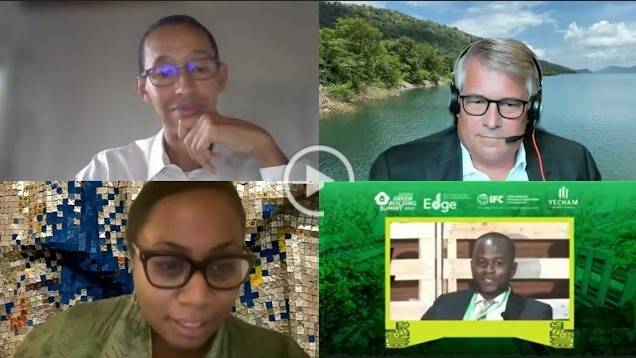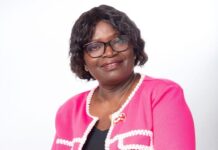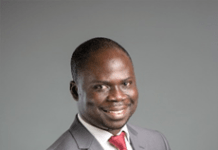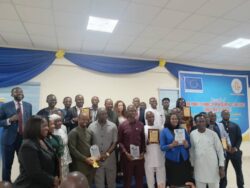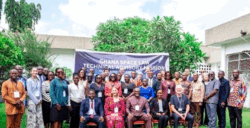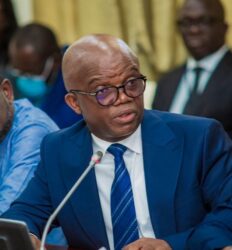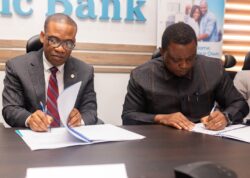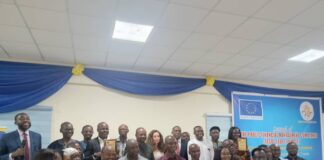God day Ghana, it’s another week and we are back with our serialized recaps from the 4th Ghana Green Building Summit 2021. Africa is the fastest urbanizing continent. By 2050, it will be home to more than 2.5 billion people with 55% of the population living in urban centres. This urban growth is not being accompanied by the requisite infrastructural investments or policies to cater to this growth and attendant challenges in cities.
This session sought to throw light on emerging green and smart technology that ensures reliable efficient delivery, monitoring of water and energy in our homes and at the city level as well as alternative /indigenous systems and technology that can be harnessed to ensure sustainable supply and access to clean water and energy in our cities.
The panel comprised of Mae-ling Lokko (PhD), Assistant Professor Adjunct, Cooper Union, Founder, Willow Technologies, Ghana; Bernard Binagwaho, Africa & Middle East Director, Tactis, France & Rwanda; Ing. Martin Appiah-Danquah, Sales Manager, Commercial Building Services, Grundfos West Africa; Søren Hvilshøj, Global Division Director, Water Resources, Ramboll, Denmark and was moderated by Kafui Dey, TV Presenter and Public Speaker. Highlights of the session are presented below:
Rethinking Buildings and Cities Fabric
Feeding off an earlier point made in the key note address, Ing. Martin Appiah-Danquah reiterated that due to increased population, there’s added stress on housing and hence the need to rethink the fabric of buildings. This he believes will ensure efficient management and equitable distribution of our water and energy resources that will ultimately lead to optimum productivity in our lives.
For Søren Hvilshøj, it is important to re-examine water strategies to ensure even distribution across regions. In some parts there are shortages while there is too much in other parts where they have to contend with flooding issues. He called for strategic water policies that will ensure water can be harnessed where it is abundant, stored until needed, reused as many times, and importantly, used in order to improve the liveability of people in the urban area.
Setting the tone for her presentation, Mae-ling Lokko approached the conversation by highlighting the building material life cycle and exploring how these materials, particularly those ones that are found abundantly and yet are quite underutilized given the fact that Ghana and many countries on the continent have a long history of exporting low-value agriculture products and not doing a lot with the agriculture waste “There are many opportunities for that to deal with a lot of the things around the operational energy saving as well as retaining water in cities that are now dealing with a ton off climate change phenomenal, like flooding”.
Bernard Binagwaho shared his belief that change management is key to driving solutions as well as collaboration between cities is key to creating smart city solutions and resilience. Such collaboration is seen in a network like ASTON which is a network of 10 African cities that work together to promote smart city solutions.
Local Water and Energy Outlook
The panel then went ahead to provide a snapshot of the water and energy outlook from their various cities of abode. Martin referenced Accra where lives and noted that in Accra, once in a while, taps run dry which indeed is a challenge for the greater part of Africa. He further emphasised that though the world it is covered with 75% of water, only 3% is fresh water and even out of the 3%, only 1% is freshwater that is acceptable for drinking. The situation he reckoned will get worse do not holistically re-examine water and energy use.
Soren indicated he had observed keenly how “the world is changing all around”. From his base in Denmark, he emphasised how the design of buildings is key in water management. Hear him “it will be good to bring into the design of buildings, the design of the landscape, if you do that, you will get the benefits of a greener environment, clean air, clean water. We can then see water from a holistic view rather than just getting rid of it in sewer tunnels as fast as you can, you can keep it upstream and inside the urban areas and reuse it on farms where you can treat it for ecosystems.
Mae-ling intimated that though she is based between Accra and New York, she was joining in from Scotland and noted that the landscape in Ghana is quiet similar to many countries around the world. It has a building sector that accounts up to 40% of primary energy consumption and when you break that 40% down, 20% of that energy goes into constructing buildings but the majority, 80% of it, goes into operating the building, mainly maintenance.
“We need to provide thermal comfort and I think that is such a powerful theme to think about, such that building materials are integrated and not divorced from the energy agenda. Many times in Ghana we look to our mechanical systems to do all of the conditioning but if materials are wisely chosen and integrated, they can play an active role in that.
Bernard shared the practice from Kigali, Rwanda where one of the priorities is water accessibility and limiting water leaks. He emphasised that even though there is no real shortage of water, all citizens still do not have access to water in their homes. Recently the Government of Rwanda and Hungary have signed US$52 million credit line to help the Water and Sanitation Corporation Limited (WASAC) fast track the implementation of projects aimed at increasing water access in different parts of Kigali City. Secondly, regarding waste management, he observed that a lot of water in the supply network can be wasted because of issues like broken pipes etc.
For him, while intelligent technologies have their place, he believes citizen engagement in helping authorities rapidly identify the leaks or any other issues regarding the cities infrastructure, is the way to go. A citizen portal is currently being deployed in Kigali that will enable citizens to report issues such as water leaks, waste dumps, broken street lamps, damaged roads or traffic lights etc. This will provide useful and important information to the city teams and enable them to be more reactive.
The Water and Energy Efficient Home of the Future
Martin shared some of his company, Grundfos’ intelligent solutions that monitor and curb wastage and leaks. While Martin advocates for patronage of such intelligence systems, he also admitted that It is extremely difficult and expensive to make a building energy efficient after it has been erected. So to him, looking into the future, he recommends getting it right at the planning phase where policymakers, architects, consultants can all engage to ensure that we begin to employ some of these very intelligent solutions.
For Soren, beyond technology, the human aspect in water management system is non-negotiable. He said “if you start putting pressure on the pumps, the more pressure you have on the pumps the more leakage you have from the pipes.’ He proffered a few solutions. “You can have air diffusers in the showers the save 20% of the water as compared to the others. If you look at the dishwashers take the one with low water consumption and the washing machines with all this. There is so much water to be saved and by the way when you save the water we also save the energy” Soren advised.
For Bernard, no city can become resilient if the people themselves don’t change the way they do things through mutual engagement. He referenced a system in Kigali that is currently being deployed – the citizen portal, where people are given the opportunity to digitally interact with authorities in delivering smart and sustainable city solutions.
Regarding the water and energy-efficient home of the future, Mae-ling recommended not overly focusing on the concrete aspect of building and cities, but indoor environmental quality, including thermal, acoustic and even how the building smells for instance. “Today (in terms of our indoor air quality) we are surrounded by thousands of materials that are off-gassing invisible harmful gases into our air and we are breathing that in. This leads to a ton of respiratory diseases.
How might we think of the future buildings as probiotic, not anti-biotic”. She also recommended looking back at how vernacular buildings and technologies are able to control heat through combining the use of material, ventilation and thermal gradients for instance to mitigate drastic thermal changes in temperature from the outside to inside. It would be great to employ large scale veranda spaces and well-ventilated spaces for instance that will go a long way to increase our well-being in the building and the city.
This session was first presented at 4th Ghana Green Building Summit 2021.
The writer is the Executive director of Yecham Property Consult & Founder of Ghana Green Building Summit.
Email: [email protected]
LinkedIn: Cyril Nii Ayitey Tetteh

